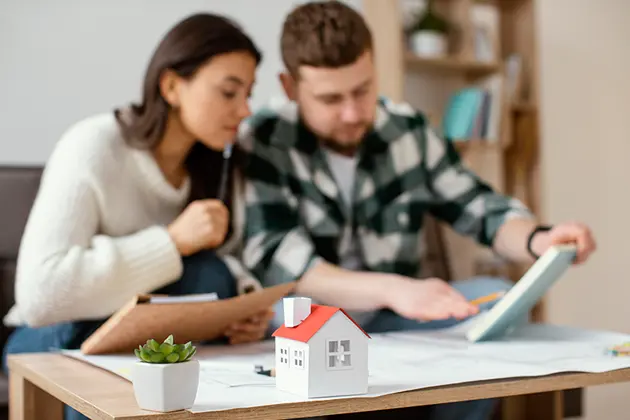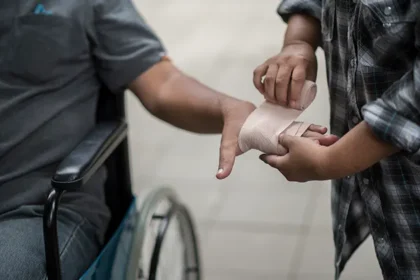Buying a home is an exciting adventure, but it might seem a bit much if it’s your first time. There are many steps, from working out your budget to finalizing your dream home. Each step needs careful thought and planning. Even though it can feel like a lot, having a clear plan can make things easier.
Here’s some advice on where to start with buying a home.
Determine Your Budget
Before you start looking at listings, it’s essential to determine how much you can comfortably afford. This helps you narrow down your search to homes within your financial range, making the process more efficient. Look at your current income, savings, and monthly expenses to get an idea of what you can afford to spend on a mortgage without straining your budget.
Additionally, remember that the price of a home is just one part of the expense. There are other factors like property taxes, insurance, maintenance costs, and potential homeowner association fees. Having a realistic view of your finances will help ensure you don’t overextend yourself.
Get Pre-Approved for a Mortgage
Once you know your budget, the next step is to get pre-approved for a mortgage. This not only shows sellers that you mean business but also gives you a clear idea of how much money the bank is willing to lend you. Having pre-approval can really speed things up when you find a house you want since you’ve already handled some of the money stuff in advance.
Talking to a mortgage agent can make this easier. They can help walk you through getting pre-approved, explain different mortgage options, and find good terms for your situation. Having someone experienced on your side can make a real difference, especially if you’re new to mortgages.
Decide on Your Priorities
Knowing what you want in a home can save you time and keep you on track. Make a list of must-have features and those that are just nice to have. Think about things like how many bedrooms you need, how close it is to schools or public transportation, and what kind of neighbourhood you’d feel most comfortable in.
Focusing on your needs versus wants will help when you’re looking at homes. It’s easy to get caught up in how a place looks, but keeping your core needs in mind will help you find a home that fits your lifestyle.
Research Neighbourhoods
Your choice of neighbourhood will affect your daily life just as much as your home. Start by looking into areas that suit your budget and lifestyle. Consider things like commute times, nearby facilities, and the overall feel of the community. Visiting the neighbourhood at various times can give you a sense of what living there is really like.
Checking out different neighbourhoods also shows you what your money can buy. Some places might offer more value, while others could be pricier due to their location. Research is also one of the best practices for home mortgages. Check to ensure you secure the best rates possible on the property.
Begin the Home Search
Now comes the exciting part – house hunting! With your budget, priorities, and favoured neighbourhoods in mind, you can begin browsing listings online or attending open houses. As you tour homes, jot down notes and take photos to help you recall each place. Since you’ll probably see several houses, keeping track of what you liked and didn’t like in each one can be really useful.
Working with a real estate agent can make your search smoother. Agents have access to listings and market information that can help you find homes that suit your needs. They can also arrange viewings and guide you through each step, ensuring you don’t overlook any important details. If you’re exploring more spacious or nature-focused living options, you may also want to look into Luxury acreages in Red Deer County, which offer a unique blend of privacy, land, and high-end rural lifestyle.
Make an Offer
When you find a home that meets all your needs, it’s time to make an offer. The offer should reflect what similar homes are selling for and consider any special features or repairs. Your real estate agent can help figure out a fair offer that is competitive yet reasonable.
Once the offer is submitted, the seller might accept, counter, or reject it. This part can be stressful, but staying calm and sticking to your budget is key. Remember, it’s alright to walk away if the deal doesn’t suit you.
Schedule a Home Inspection
A home inspection is crucial for any buyer. It gives a detailed view of the property’s condition and warns you about possible repairs or issues. Hiring a certified inspector makes sure you get a complete check, covering everything from the roof and foundation to plumbing and electrical systems.
If the inspection finds major problems, you might be able to renegotiate your offer or ask for repairs before finalizing the deal. This step protects you from unexpected expenses in the future and gives you peace of mind about your purchase.
Close the Deal
The last step in buying a house is closing. This is when you sign all the documents and the home becomes yours. You’ll need to bring money for the down payment and closing costs. Once everything’s signed, you’ll get the keys and the property officially belongs to you.
To make sure everything goes smoothly, review all the documents before closing day. If there’s anything you don’t understand, ask questions. This will help wrap up the home buying process well.










